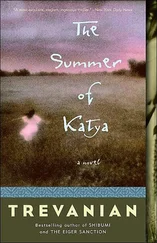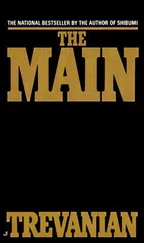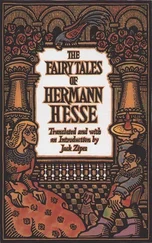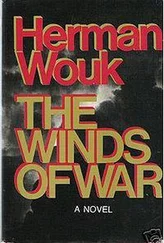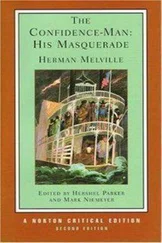Herman Whitaker - The Settler
Здесь есть возможность читать онлайн «Herman Whitaker - The Settler» — ознакомительный отрывок электронной книги совершенно бесплатно, а после прочтения отрывка купить полную версию. В некоторых случаях можно слушать аудио, скачать через торрент в формате fb2 и присутствует краткое содержание. ISBN: , Жанр: foreign_prose, на английском языке. Описание произведения, (предисловие) а так же отзывы посетителей доступны на портале библиотеки ЛибКат.
- Название:The Settler
- Автор:
- Жанр:
- Год:неизвестен
- ISBN:http://www.gutenberg.org/ebooks/43450
- Рейтинг книги:4 / 5. Голосов: 1
-
Избранное:Добавить в избранное
- Отзывы:
-
Ваша оценка:
- 80
- 1
- 2
- 3
- 4
- 5
The Settler: краткое содержание, описание и аннотация
Предлагаем к чтению аннотацию, описание, краткое содержание или предисловие (зависит от того, что написал сам автор книги «The Settler»). Если вы не нашли необходимую информацию о книге — напишите в комментариях, мы постараемся отыскать её.
The Settler — читать онлайн ознакомительный отрывок
Ниже представлен текст книги, разбитый по страницам. Система сохранения места последней прочитанной страницы, позволяет с удобством читать онлайн бесплатно книгу «The Settler», без необходимости каждый раз заново искать на чём Вы остановились. Поставьте закладку, и сможете в любой момент перейти на страницу, на которой закончили чтение.
Интервал:
Закладка:
It speaks well for her that she did not laugh at its gorgeous colors; and her smile as she scribbled a little note of thanks that was delivered by Carter was far too tender for ridicule. Truly she was learning.
VI
THE SHADOW
Down a half-mile furrow that gleamed wetly black against the dull brown of "broken" prairie, Carter followed his oxen. He was "back-setting," deep-ploughing the sod that had lain rotting through the summer. For October, it was hot; an acrid odor, ammoniacal from his sweating beasts, mingled with the tang of the soil and the strong hay scent of scorching prairies. Summer was making a desperate spurt from winter's chill advance, and, as though realizing it, bird, beast, insects, as well as men, went busily about their business. The warm air was freighted with the boom of bees, vibrated to the whir of darting prairie-chicken, the yells of distant ploughmen; for, stimulated by an answer from the railroad gods, the settlers were striving to add to their wheat acreage.
"In certain contingencies," the general manager answered the petition, "we will build through Silver Creek next summer."
Judging by a remark dropped to his third assistant, "uncertain" would have expressed his meaning more correctly. "A little hope won't hurt them, and ought to go a long way in settling up the country. By-the-way, who signed these statistics? Cummings? That wasn't the tall Yankee who spoke so well. He never would have sent in such a jumble."
Blissfully ignorant, however, of railroad methods, the settlers interpreted the guarded answer as an iron promise. Forgetting Carter's part in getting them a hearing, Cummings and his fellows plumed themselves upon their diplomacy, took to themselves the credit – in which they evidenced the secret malevolence that a rural community holds against the man who rises above its intellectual level. Human imperfection is invariable through the ages. Plebeian Athens ostracised the just Aristides. Similarly, Silver Creek evidenced its petty jealousy against its best brains. "Oh, he's too damned smart!" it exclaimed, whenever Carter was mentioned for the council, school trustee, or other public office, nor paused to consider its logic.
Slowly, with heavy gaspings, the oxen stopped at the end of the furrow, and as he sat down on the plough while they rested, Carter blessed the happy chance that had caused him to "break" clear down to Morrill's boundary. Helen sat in the shade of her cabin, thus affording him delicious glimpses of a scarlet mouth, slightly pursed over her sewing, a loose curl that glowed like a golden bar amid the creamy shadows of her neck, the palpitant life of the feminine figure. Small wonder that he lingered on that turn.
"It's that warm," he hypocritically remarked, fanning himself, "those poor critters' tongues are hanging to their knees."
The girl bowed to hide her smile. "They always seem to tire at this end of the field."
"Discerning brutes," he answered, nowise nonplussed.
She broke a silence. "It is considered bad manners to stare."
"Yes?" he cheerfully inquired. "I'll make a note of that."
A few moments later she remarked, "You have a poor memory."
"Thank you for telling. In what way?"
"You were staring."
"N-o."
"You were."
"Beg your pardon. It takes two to make a stare. If I keep on looking you in the eye – that's staring. If I'm looking when you ain't supposed to know it – that's – that's – "
"Well?" she prompted.
"Mighty pleasant," he finished, rising.
As he moved off she looked curiously after. While he was talking, some fleeting expression, trick of speech had recalled him as she first saw him at Lone Tree – a young man, tall, sunburned, soft of speech, ungrammatical, and the picture had awakened her to a change in herself. In this her fourth month in the settlement she felt she had lost the keen freshness of the stranger's point of view. She now scarcely noticed his idiom, accent, grammatical lapses. Oddities of speech and manner that at first would have provoked surprise or laughter no longer challenged her attention. If the land's vast rawness still impressed, she was losing the clarity of first perceptions.
She was being absorbed; her individuality was slowly undergoing the inevitable process of addition and cancellation. How dim, indefinite the past already seemed. Some other girl might have lived it, gone through the round of parties, balls, associated with the well-groomed men, refined girls of her acquaintance. How vivid, concrete was the present! She contemplated her hands, roughened by dish-washing. Did it foretell her future? Would this equilibration with environment end by leaving her peer of the gaunt, labor-stricken women of the settlements? She shuddered. The thought stamped her mood so that, returning on the other round, Carter passed on, thinking her offended.
"Why so grave, sis?" Her brother smiled down upon her from the doorway. Since her arrival he had had many ups and downs, alternating between bed-fast and apparent convalescence. To-day the fires of life would flare high, to flicker down to-morrow like a guttering candle that wastes the quicker to its end. Not for the world would she increase his anxiety with her foreboding. Hiding the dejection with a quick smile, she turned his question with another.
"Bert, why does Mr. Carter dislike Captain Molyneux, the Leslies, and – "
"The English crowd in general?" he finished for her. "Does he? I never heard him say much against them."
"No, he's one of your silent men. But actions count more than words. When he drives me to or from Leslies' he invariably refuses the invitation to come in, pleading hurry."
"Well, he has been pretty busy."
Morrill stated a fact. Carter had spent the haying months in the forest sloughs, where they cut the bulk of their fodder. There, with the deep woods smothering every errant breeze, mercury at a hundred, the fat marsh sweating underfoot, he had moved, raked, or pitched while sand-flies took toll of his flesh by day and mosquitoes converted his homeward journey into a feast of blood. Eighty head of cattle, his and Merrill's, had to be provided for, and he alone to do it. And it was from these heavy labors that he had stolen time to drive Helen back and forth.
"But he repels their every attempt at friendliness!" she protested. "Positively snubbed Captain Molyneux the other day."
Morrill laughed. "Why do they persist in their overtures? Carter is flesh and blood of the frontier, which makes no bones over its likes and dislikes. With him a friend is a friend. He has no use for civilization which calls upon its votaries to spread their friendship in a thin veneer over a vast acquaintance. Having, courteously enough, intimated that he doesn't desire closer acquaintance, he expects them to heed the hint. Failing, they may expect to have it stated in stronger terms. Molyneux has lived long enough in the north to know that." His answer, however, simply completed the circle and brought them back to the starting-point.
She restated the issue. "But why doesn't he like them?"
Morrill answered her question with another. "Why do you like them?"
"They are nice."
"Mrs. Leslie?" he catechised.
"A trifle frivolous, perhaps, but – I like her."
"Leslie, Danvers, Poole, and the rest of them?"
"Impractical," she admitted, "thoroughly impractical, all but Captain Molyneux. His farm is a model. Yet – I like them."
She spoke musingly, as though examining her feelings for cause, analysis of which would have shown that the wide differences between herself and her new acquaintances had added to the glamour and sparkle which are given off by fresh personalities. She liked their refinement, courtesy, subtleties, and grace of conduct which shone the brighter in that rough setting. To her their very speech was charming, with its broad vowels, leisurely drawled, so much softer than the clipped American idiom.
Читать дальшеИнтервал:
Закладка:
Похожие книги на «The Settler»
Представляем Вашему вниманию похожие книги на «The Settler» списком для выбора. Мы отобрали схожую по названию и смыслу литературу в надежде предоставить читателям больше вариантов отыскать новые, интересные, ещё непрочитанные произведения.
Обсуждение, отзывы о книге «The Settler» и просто собственные мнения читателей. Оставьте ваши комментарии, напишите, что Вы думаете о произведении, его смысле или главных героях. Укажите что конкретно понравилось, а что нет, и почему Вы так считаете.

